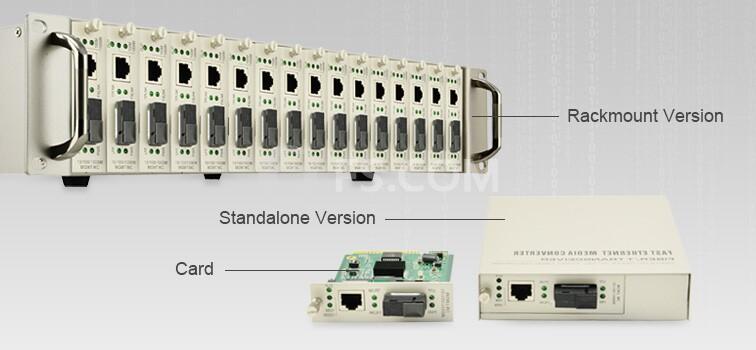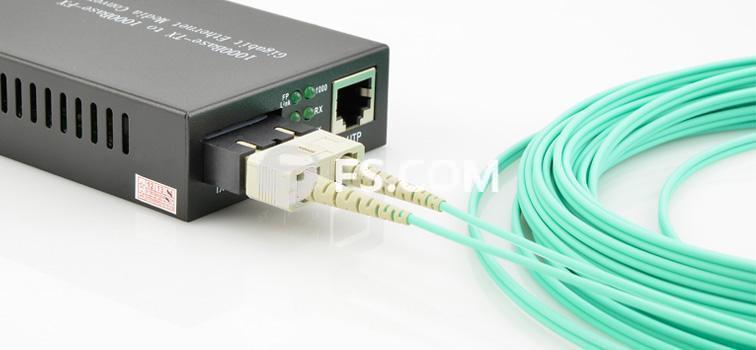As is known to all, fiber media converter
is a simple networking device which can connect two dissimilar media
types such as twisted pair cable with fiber optic cable. And it can
support many different data communication protocols including Ethernet,
Fast Ethernet, Gigabit Ethernet, etc. According to the network to
points, media converters can be divided into managed media converters
and unmanaged media converters. This article will tell about these two
kinds of media converters.
What Is Managed Media Converter?
Managed
media converter supports carrier-grade network management. It is more
costly than the unmanaged media converter, but it has the ability to
provide additional network monitoring, fault detection and remote
configuration functionality not available with an unmanaged media
converter. Typically, managed media converters are equipped with remote
Web / SNMP (Simple Network Management Protocol) interface, which enables
network administrators to easily monitor and setup the converter, the
transmission speed and duplex through web/SNMP browsers. The managed
media converters are mostly suitable for those environments requiring a
medium to large-scale deployment of media converters. Managed
10/100/1000 Ethernet media converter module is the smart choice for IT
professionals.
What Is Unmanaged Media Converter?
Unmanaged
media converter simply allows devices to communicate, and does not
provide the same level of monitoring, fault detection and configuration
as equivalent managed media converter. Connect the devices to the
unmanaged media converter and they usually communicate automatically.
With “plug and play” feature, unmanaged media converters are easy to
install and troubleshoot. But the advantage is when a network issue is
occurring, there is no way to access the media converter to see exactly
what might be causing the issue. Unmanaged media converter is a great
choice for newbies if you want a plug and play fiber network cable
installation.
When and Where to Use?
The
managed media converters are aimed at users that require a response
time of milliseconds. They are especially suitable for organizations
that need to manage and troubleshoot the network remotely and securely,
allowing network managers to reach optimal network performance and
reliability. They can be used on any segment of a network where the
traffic has to be monitored and controlled as they enable complete
control of data, bandwidth and traffic. The unmanaged media converters
are mostly used to connect edge devices on network spurs, or on a small
stand-alone network with only a few components. They are suitable for
any network that wants to simplify the installation of access points.
Summary
This
article describes some basic information about the managed media
converters and unmanaged media converters as well as their usage. The
information may not be comprehensive. It’s just a reference. As a
leading supplier in optical communication industry, FS.COM provides a
series of managed and unmanaged media converters with various
configurations. For the details, you can visit www.fs.com or contact us
over sales@fs.com.


没有评论:
发表评论